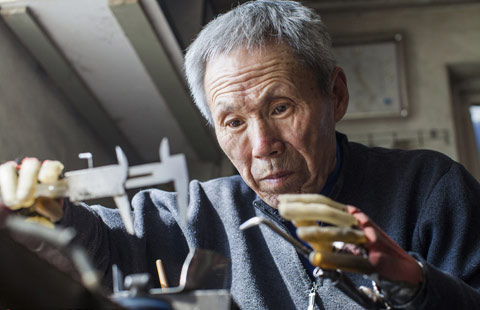Real estate costs made deductible
By AN BAIJIE (China Daily) Updated: 2016-03-19 07:54Pilot value-added tax reform to save more than 500b yuan for domestic enterprises
The taxation burden of China's enterprises is estimated to be eased by more than 500 billion yuan ($77.2 billion) after the wider implementation of a pilot value-added tax reform.
Four business sectors-construction, real estate, finance, and consumer service-will be included in the reform of business tax to value-added tax from May 1, according to decisions made on Friday during the executive meeting of the State Council, China's Cabinet.
The extension of the tax-to-VAT is aimed to reduce companies' tax burdens and support the development of modern service and manufacturing industries, according to a news release on the meeting, which was presided over by Premier Li Keqiang.
According to the release, the price of new real estate purchases may be included in companies' cost of production for tax exemption. In the previous pilot project, machinery bought by companies was included in the cost of production.
The service export could also enjoy zero tax rate or tax-free policies, the new release said. A pilot plan on business tax-to-VAT was tested in 2012. Business tax refers to a levy on the gross revenue of a business while VAT refers to a tax levied on the difference between a commodity's price before taxes and its cost of production.
From 2012 to the first half of 2015, the measure has resulted in tax savings of more than 484.8 billion yuan, accounting for 0.2 percent of GDP in the period, according to a report of China International Capital Corp Ltd, a joint venture investment bank.
The meeting also outlined nine aspects of the government's work this year. Officials are urged to implement the Government Work Report, approved by the National People's Congress during its just-concluded annual meeting, in a responsible, proactive, and practical manner.
Government officials will be punished if they are found idle and negative in implementing the major policies, projects and measures.
The government will keep a close eye on the domestic and international economic situation, make full use of fiscal and monetary tools, and prevent various risks.
New growth engines will be cultivated to make up for the weakening role of traditional sectors in contributing to economic growth, the release said.
- Xi calls for new ideas to ensure 'extraordinary' 2022 Games
- GDP target is attainable, OECD chief says
- Immigrant numbers rise in cities
- 2 arrested in illegal sale of vaccines
- Zootopia sloth, foxes shoot to stardom
- Relations resumed with Gambia
- National standard to be rolled out for lab testing of animals
- More students returning after completing studies overseas
- Palace Museum sees souvenir sales boom
- Climate study: China impact less







